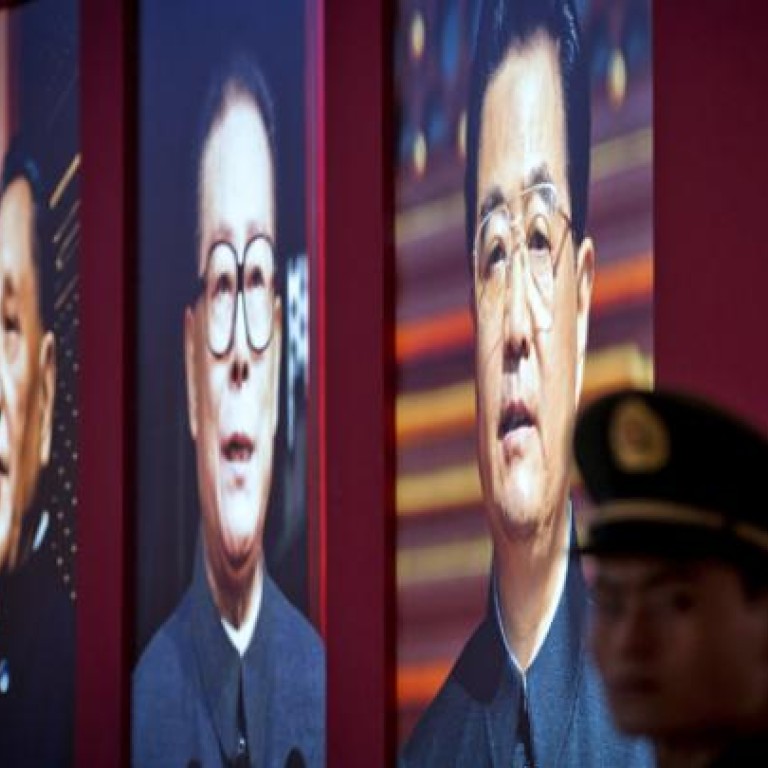
Hu Jintao leaves behind a mighty yet anxious China
Hu Jintao presided over a momentous decade in which China cemented its re-emergence as a global power, became the world’s second-largest economy, and dazzled the world with a glittering Olympic Games.
But the outgoing Communist chief leaves his successor Xi Jinping – set to be appointed party leader at a congress starting this week – facing an array of problems stemming from China’s economic and social shifts, and hidebound politics.
When Hu, 69, came to power a decade ago, he was a largely blank slate, leading some to hope that he could be a reformer who might help inch China toward some form of modest liberalisation.
But today the Communist Party’s stranglehold is tighter than ever.
Corruption festers at all levels of business and politics, and while the economic miracle that has lifted hundreds of millions out of poverty continues, growth is slowing and inequality and pollution are worsening.
Hu made more sustainable and inclusive development his mantra.
“The past 10 years I would say were two-sided: on the one hand there were great achievements, but on the other hand there were many problems,” said Pu Xingzu, a politics professor at Fudan University in Shanghai.
“Solutions for these problems must be found... or they will get more complicated, more difficult and more serious,” he said, adding that China needed “bold, risk-taking” leaders to confront them.
A product of the conservative Communist Youth League, Hu has been anything but an agent of change – a wooden figure with the look of a bank manager and a cautious approach.
Trained as an engineer, he spent much of his career in poor interior regions that largely missed out on the growth enjoyed by vibrant coastal manufacturing areas after late leader Deng Xiaoping launched economic reforms 30 years ago.
But an endorsement by Deng sent Hu on a path to the top of the Communist Party leadership and the national presidency.
He came to power at a time when the side effects of years of growth-at-all-costs policies were becoming acute, with economic reforms having tossed tens of millions of workers from jobs in state-owned firms.
Rampant growth had made China one of the world’s most polluted countries and those dispossessed by rapid change were mounting tens of thousands of protests each year.
To address such ills, Hu called for smarter, more balanced growth – he called it “scientific development” – to provide support for the rural poor, reform some social services, and stage pollution crackdowns.
But despite his best efforts rural inequality is near “danger” levels, according to a report in August by a state-linked think-tank, and some voices within the party have warned the underlying problems are worsening.
Hu’s successors come to power at a time of growing pressure for reform of a growth model that relies heavily on exports and investment.
Economists say this puts China increasingly at the mercy of foreign economies – overseas financial troubles have slowed growth this year – and advise a more balanced economy with domestic consumption playing a greater role.
But observers say the party leadership’s cautious, consensus-driven approach has militated against bold action.
“They (the leadership under Hu) weren’t cosmopolitan, market-oriented reformers with a vision of how things needed to change radically. They were administrators from the interior,” said William Overholt, a research fellow at Harvard University’s Kennedy School of Government.
Another blot on Hu’s record is the perceived failure of his calls for a “harmonious society” – a unified China pulling together – a slogan tarnished by the persistent social turmoil and violent unrest among various ethnic minorities in recent years.
Steve Tsang, director of the China Policy Institute at the University of Nottingham, said the government deserves credit for maintaining steady growth amid external shocks, adding “a clear majority of Chinese have got better off”.
But he added: “They didn’t achieve very much in terms of what they said they would set out to do.
